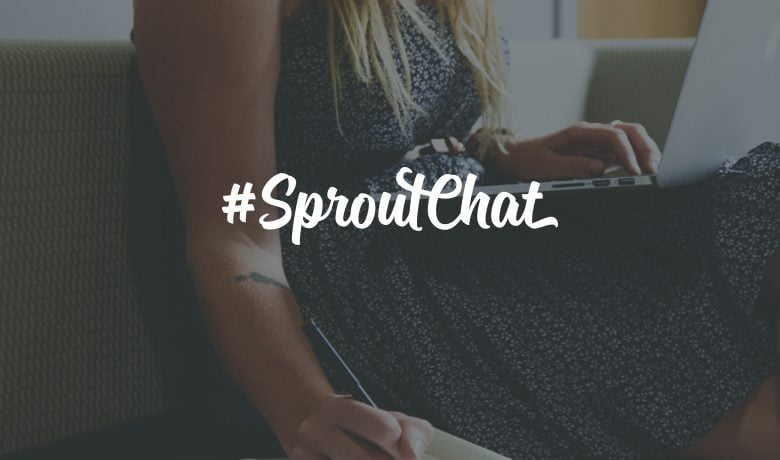Ask any college student about social media, they’ll tell you that it’s an integral part of their school experience, both on and off campus. Social media marketers already understand the importance of tailoring messaging for audiences and focusing on the platforms that their audience consumes the most, but for colleges and universities it’s goes a little beyond that.
This week at #SproutChat, we were joined by Sprout All Star, Phil Hughes of NYU Admissions, to chat about where schools ideally allocate social efforts and the types of content that compliment an institution of higher education’s messaging.
Craft Content With Audience in Mind
It’s important to share content that will resonate with your audience and ensure that you’re delivering your institution’s messaging effectively. Depending on the platform, try exploring video and images and see what performs best.
A1: It varies depending on the department. Different students are going to connect with different types of content. #sproutchat
— Netvantage Marketing (@netvantage) September 20, 2017
A1) content embracing diversity in education, from dorm rooms to course to leisure time. #SproutChat
— Mollie Clarke 🍁 (@mollieblog) September 20, 2017
A1. Content that aligns to your goals and strategy, which is focused on communication and engagement. #SproutChat https://t.co/HAHJfknimi
— Josh Kohnert (@JoshKohnert) September 20, 2017
A1b: You can share behind-the-scenes content, stories from staff and students, as well as informative updates. #SproutChat
— Express Writers (@ExpWriters) September 20, 2017
A1: Content that gives users a behind-the-scenes look at that university’s experience — Showcase school spirit, events, etc. #SproutChat
— Flying Cork (@flyingcorkpgh) September 20, 2017
A1: Depends on audience. Specifically for admissions: student experience or life on “the Hill,” as we say. What to expect on visits. UGC! 💯
— Katie McCurry (@KUirishgirlie) September 20, 2017
Gain Interest of Senior Leadership
Show senior leadership how other colleges, universities or brands use social to boost recruiting. Get them involved in the process to show prospective students what can’t be shown in glossy recruiting print materials.
A1. Data. Data. And More Data. Best lesson from film ever. “Show. Don’t tell” #SproutChat https://t.co/JyCzQyDAWN
— Phil Hughes (@PhillyPurfect) September 20, 2017
A2: Simply put: data. Comparison of other #highered campaigns also helps, b/c it shows what others have done in the same space. #SproutChat
— Katie McCurry (@KUirishgirlie) September 20, 2017
A2 Get higher ups involved in the production of content – include them in a facebook live event engaging with students. #sproutchat
— constancegail (@constancegail) September 20, 2017
A2. The biggest thing is to give plenty of data. If they see who you can target and how effective it is, it is hard to say no. #SproutChat
— Venture Icon Media (@VentureIcon) September 20, 2017
A2: Show them examples of social campaigns that have worked in the past & showcase how that can translate for your efforts. #SproutChat
— Flying Cork (@flyingcorkpgh) September 20, 2017
A2. Having a defined strategy with measurables and the data to back it all up goes a long way. Hooking them into it helps too. #Sproutchat https://t.co/ND6bkKUVNZ
— Josh Kohnert (@JoshKohnert) September 20, 2017
Focus on Authenticity
Remember the audience that you’re communicating with. Keep your social platforms conversational and play with posts featuring less copy and more visuals to better capture your audiences attention.
A4: We’re also big on talking to our audience like people. Most people don’t speak like an academic paper so why should we? #SproutChat
— Phil Hughes (@PhillyPurfect) September 20, 2017
A4. Use language students will understand, but keep proper English and grammar. #SproutChat
— Reva Minkoff (@revaminkoff) September 20, 2017
A4. Keep your audience in mind. Use language that they will understand, if you get too professional they might tune you out. #SproutChat
— Venture Icon Media (@VentureIcon) September 20, 2017
Q4. It often depends on the channel. Mostly we speak as they do but act as a motivational guide and advocate for their success #sproutchat
— SCI Texas (@SCI_TX) September 20, 2017
You’ve got to be on brand and on TREND. Stay relevant and students will feel connected. #SproutChat
— Adlai Salcedo (@salcedoadlai) September 20, 2017
A4: Switch it up with different post types. Use student speak maybe 70% of the time since that is commonly your audience. #sproutchat
— Netvantage Marketing (@netvantage) September 20, 2017
Target Audiences Means Separate Accounts
Not all messages can or should be published from general accounts. If you’re looking to give prospective students an inside look into your institution or, for example, have a robust athletics program to promote, creating separate social accounts can be useful.
Be sure to know your objectives with each audience before creating accounts specific to them and line up your strategy.
A5: Yes, someone from the department should be in charge of social. They know what is going on in the dept most. #sproutchat
— Netvantage Marketing (@netvantage) September 20, 2017
A5. It’s inevitable, but there should always still be one official university account. #SproutChat
— Reva Minkoff (@revaminkoff) September 20, 2017
A5: A School could have different accounts, maybe not for every department though. #SproutChat
— Digital Addicts (@digitaladdicts_) September 20, 2017
A5: I think the Q should be what is the objective? For having an account or posting in general… What need isn’t being met? #SproutChat
— Katie McCurry (@KUirishgirlie) September 20, 2017
A5: Depends. Sometimes getting that granular can spread your content too thin and not provide as much value. #SproutChat
— Flying Cork (@flyingcorkpgh) September 20, 2017
Tune in to #SproutChat next Wednesday, 9/27 at 2 p.m CT, to talk about effective actions during a social crisis. Until then join our Facebook community to interact with other folks in the industry.
